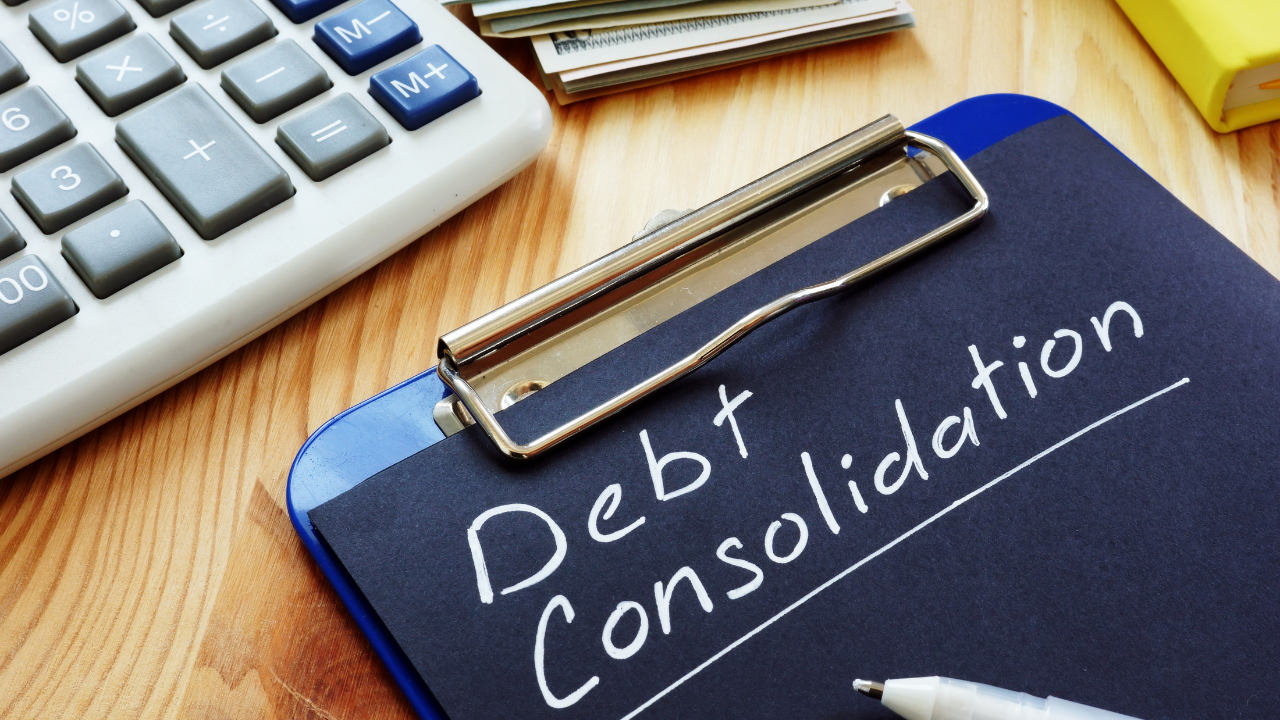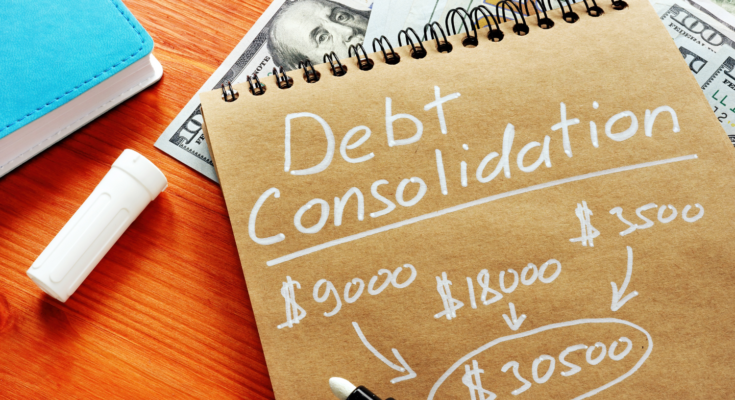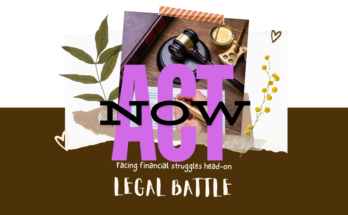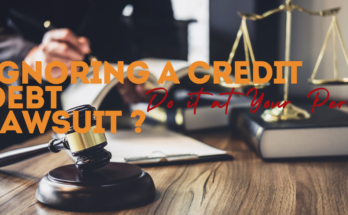Debt Consolidation: Should You Consolidate Your Debt?
Debt consolidation means combining several debts into one. This might include credit cards or personal loans. You do this by either getting a new loan or transferring to a card with a lower interest rate. It could make paying off debts quicker and maybe reduce what you pay monthly. But, it’s wise to weigh the good and bad points first
This guide will explain what debt consolidation does and when it’s useful. We’ll discuss the benefits and the possible downsides. This way, you can figure out if it’s a smart move for your money1.

Key Takeaways
- Merging debts into one can simplify your payment process.
- Getting a lower interest rate with consolidation can save you money and time2.
- But, debt consolidation might not work if you owe too much compared to what you make2.
- Watch out for extra charges and changing interest rates in some consolidation plans3.
- It won’t fix the money habits that caused the debt issue in the first place1.
What Is Debt Consolidation?
Definition and Explanation
Debt consolidation is like putting all your debts into one basket4. This might mean getting a loan or using a special credit card. It makes paying off what you owe simpler. The aim is to snag a lower interest rate. This could help clear your debt quicker and save cash on interest4.
Two main ways to consolidate debts are worth looking at. A balance transfer credit card is one option. It can give you a break from interest for 6 to 21 months4. But, there’s usually a fee, between 3% and 5%, on each balance you shift4.
The other choice is a debt consolidation loan. Loans often have lower rates than credit cards4. For folks with great credit, the interest could be around 18.35%. That’s over 6 points lower than the usual credit card rates4. Your payback time can vary from a year to five years, maybe even longer. This helps fit the loan into your budget4.
If you have good credit, you usually get better loan deals4. Plus, watch out for extra loan fees, which could be anywhere from 1% to 8%. These fees add to what you’ll owe4.
I recommend the YouTube video below, as the creator offers an excellent explanation of the topic. The link to the video is provided in the reference section.
Debt consolidation is a smart move for cutting debt costs. But, before jumping in, check all the fees and terms4. Knowing what’s involved helps you decide if this is the smart choice for you4.
WHAT IS DEBT CONSOLIDATION? SHOULD I CONSOLIDATE MY DEBT?
Debt consolidation is a smart financial move for those with many high-interest debts. These could include credit cards or personal loans5. It works by combining your debts into one. This might lower your monthly payments and help you pay off your debt faster6.
But, it’s crucial to look at the good and bad of debt consolidation. This helps figure out if it fits your financial situation. Things like your credit score and what interest rate you can get matter5.
Benefits of Debt Consolidation
- Lower Interest Rates: By combining your debts, you could get a lower interest rate. This can save you a lot of money over time6.
- Simplified Repayment: With debt consolidation, you make one payment each month. This can help make managing your debt easier.
- Improved Credit Utilization: Having fewer credit accounts can boost your credit score6.
When to Consider Debt Consolidation
Consider debt consolidation if you fit these points:
- Your credit score is usually around 740 or more, making you eligible for better rates5.
- If your credit used is over 30%, you might have too much debt compared to your credit limit5.
- You have a steady income that makes it possible to pay the loan every month6.
- If handling many high-interest debts is a challenge for you6.
Deciding on debt consolidation needs careful thought. Getting advice from a financial advisor or a credit counselor can make your choice smarter56.
“Consolidating your debt can be a powerful tool to simplify your finances and potentially save money on interest, but it’s not a one-size-fits-all solution. It’s crucial to evaluate your unique financial circumstances before deciding if debt consolidation is the right choice for you.”
How Debt Consolidation Works
The debt consolidation process has three main parts:7
- You get a new loan, like a personal loan, or choose a balance transfer credit card.
- The new loan is used to pay off all your old debts.
- You then start paying back the new loan. This usually comes with a potentially lower interest rate7.
How you consolidate debt can change, depending on what method you pick. But, it always aims to make your payments simpler and save on interest7.
Step-by-Step Process
Looking closely at steps to consolidate debt shows:8
- Evaluate your debts: First, learn all about your debts. Check their balances, interest rates, and what you pay every month. This tells you if consolidation works for you8.
- Research consolidation options: Look into various debt consolidation loans, like personal loans or balance transfer cards. See what the interest, fees, and terms are. Then, pick what fits your needs best9.
- Apply for a consolidation loan: After picking, apply for the loan. This step might need you to share financial details, get a credit check, and offer something if it’s a secured loan9.
- Use the new loan to pay off existing debts: Once your loan is good to go, use it to clear your debts. Now, you have only one, perhaps lower, monthly payment7.
- Make regular payments on the new loan: Keep up with paying your consolidation loan on time. Doing this can boost your credit score8.
By sticking to these steps, your debt handling becomes easier. Plus, you might end up paying less in interest through debt consolidation789.
Pros and Cons of Debt Consolidation
Debt consolidation is a smart financial move, but it’s not for everyone. Before you jump in, look at the good and bad sides10. Knowing these can help figure out if it suits your money matters well.
Advantages of Debt Consolidation
- You might get a lower interest rate. Personal loans often charge 12.35 percent interest, compared to credit cards at 20.67 percent10.
- One easy payment to make. This can really simplify managing your money11.
- It could boost your credit score. By bringing down how much you owe, you might see a score increase, which is great news for your finances10.
- You can save money on interest. Up to $820 saved in just two years? That’s pretty good12.
Disadvantages of Debt Consolidation
- There are costs to start. Origination fees for debt consolidation loans can be costly, adding to your debt10.
- You might end up with a higher interest rate. If you’re not seen as a good credit risk, the interest rate on your consolidation loan could be higher than your current debts10.
- You might pay for longer. Extending your loan term to as much as seven years, could mean more interest paid over time10.
- There’s a risk of taking on more debt. Getting rid of old debts might make it tempting to start running up new ones11.
Choosing debt consolidation means thinking hard about your financial situation and what you want to achieve. Looking at both the good and not so good sides helps. It lets you make a choice that’s best for your financial future10.
When to Consider Debt Consolidation
If you have a lot of debt that seems impossible to pay off in a year, it’s time to look at debt consolidation. Take into account your total debt and your credit score13. You should also think about how fast you can clear your debt. If you can do it quickly, or if your credit is too low for a better interest rate, another option could suit you better.
Debt consolidation can offer you a lower interest rate13. This can mean big savings over time. For example, rates are usually between 11.72% and 17.99% when you refinance13 . You can take out a personal loan for consolidating debts from $5,000 to $40,000. You usually get between 2 to 5 years to pay it off.
Another option is using balance transfer credit cards. They can give you a period of 0% APR, like 18 months on balance transfers and 0% for 12 months on new purchases13. But watch out for the transfer fees. They are about 3% of each balance you move, with a $5 minimum or 5% after that13.
Having a good credit score is key for debt consolidation. Lenders like to see fair to excellent scores13. While some might consider you with a lower score, be ready for higher rates13.
It’s also important to fix the root causes of your debt, like overspending or poor budgeting14. Debt consolidation can offer a way to start fresh. But without fixing those root issues, you might find yourself in debt again.
To know if debt consolidation is right for you, here’s what to consider15: lot of debt, a credit score that promises a lower interest rate, and a plan to tackle what caused your debt. It’s crucial to look at your financial situation closely to decide the best step for you.
Conclusion
Debt consolidation can help you get your finances in order. But, you need to think about its upsides and downsides first16. Knowing what debt consolidation is and how it helps will guide your decision16. The key to making it work is to solve the reasons behind your debt and to use money wisely from now on16.
Yes, consolidating debts can make things simpler for you financially16. Yet, it comes with some risks like possibly harming your credit score or using your home as security1617. It’s important to think carefully about the good and the bad. This way, you can figure out if it’s the right move for your money situation1617.
Deciding to consolidate debt means really understanding where you stand, money-wise. It’s about fixing what caused the debt in the first place161817. With all these in mind, you can be on your way to financially healthier days161817.
FAQ
What is debt consolidation?
Debt consolidation means combining several debts into one. This is done via a new loan or balance transfer credit card. The goal is to simplify your payments and possibly save money on interest.
How does debt consolidation work?
To consolidate debt, you start by getting a new loan or credit card. This new source of money is then used to pay off your existing debts. You’ll then focus on paying back this single loan or credit card. Often, this means you’re paying at a lower interest rate.
What are the potential benefits of debt consolidation?
There are many possible perks to debt consolidation. It can simplify how you manage your finances. You might get a lower interest rate, and this could lower your monthly payment. Also, it might boost your credit score by reducing your debt.
What are the potential drawbacks of debt consolidation?
However, there are downsides to consider. It could end up costing you more. This may happen if you stretch out your payments over a longer time. You might also face a higher interest rate, especially if your credit isn’t the best.
When is debt consolidation a good option?
Debt consolidation could be the right move if you’re dealing with a lot of debt. It should be more than you can handle in a year. You’ll need a good credit score to get a lower interest rate on the new loan. It’s also key to figure out why you got into debt in the first place.
Disclaimer:
The topics discussed in this blog are for educational and informational purposes only. They do not constitute formal advice to act upon in any way. Readers should consult with a qualified professional before making any decisions or taking any actions based on the information provided. The author and the blog are not liable for any consequences resulting from the use or reliance on the information presented.
Source Links
- https://www.forbes.com/advisor/personal-loans/pros-and-cons-of-debt-consolidation/ – Pros And Cons Of Debt Consolidation
- https://www.nerdwallet.com/article/finance/consolidate-debt – What Is Debt Consolidation, and Should I Consolidate? – NerdWallet
- https://www.consumerfinance.gov/ask-cfpb/what-do-i-need-to-know-if-im-thinking-about-consolidating-my-credit-card-debt-en-1861/ – What do I need to know about consolidating my credit card debt? | Consumer Financial Protection Bureau
- https://www.lendingtree.com/debt-consolidation/what-is-a-consolidation-loan/ – What Is Debt Consolidation? Is It Right For You? | LendingTree
- https://www.equifax.com/personal/education/debt-management/articles/-/learn/what-is-debt-consolidation/ – Articles
- https://www.bankrate.com/personal-finance/debt/types-of-debt-you-can-consolidate/ – 4 Types of Debt You Can Consolidate | Bankrate
- https://www.investopedia.com/terms/d/debtconsolidation.asp – What Is Debt Consolidation and When Is It a Good Idea?
- https://www.usbank.com/loans-credit-lines/debt-consolidation.html – Debt consolidation | How does debt consolidation work? | U.S. Bank
- https://www.bankrate.com/loans/personal-loans/how-debt-consolidation-loans-work/ – How does debt consolidation work? | Bankrate
- https://www.bankrate.com/personal-finance/debt/pros-and-cons-of-debt-consolidation/ – Pros and Cons of Debt Consolidation | Bankrate
- https://www.experian.com/blogs/ask-experian/pros-and-cons-of-debt-consolidation/ – Pros and Cons of Debt Consolidation – Experian
- https://www.nerdwallet.com/article/loans/personal-loans/pros-and-cons-debt-consolidation – The Pros and Cons of Debt Consolidation – NerdWallet
- https://www.cnbc.com/select/when-to-consolidate-debt/ – Thinking of consolidating your debt? Here are four signs it could be the right move for you
- https://www.key.com/personal/financial-wellness/articles/consolidate-debt.html – At What Point Should I Consolidate My Debt? | KeyBank
- https://www.cbsnews.com/news/is-a-debt-consolidation-program-a-good-idea/ – Is a debt consolidation program a good idea?
- https://www.chase.com/personal/credit-cards/education/basics/how-to-consolidate-your-credit-card-debt – Ways to Consolidate Credit Card Debt | Chase
- https://time.com/personal-finance/article/debt-consolidation-pros-cons/ – Pros & Cons of Debt Consolidation
- https://www.prosper.com/blog/guide-to-debt-consolidation – Your Ultimate Guide to Debt Consolidation
- https://youtu.be/Fw33a0MdXfs -Debt Consolidation Explained in 2024




